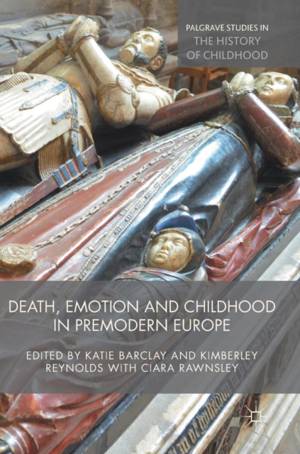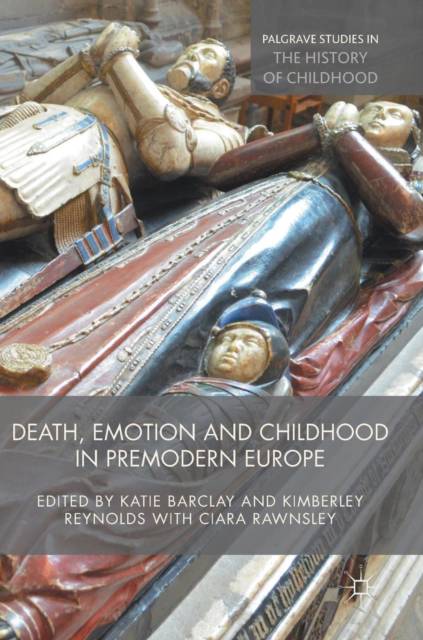
- Retrait gratuit dans votre magasin Club
- 7.000.000 titres dans notre catalogue
- Payer en toute sécurité
- Toujours un magasin près de chez vous
- Retrait gratuit dans votre magasin Club
- 7.000.0000 titres dans notre catalogue
- Payer en toute sécurité
- Toujours un magasin près de chez vous
Death, Emotion and Childhood in Premodern Europe
152,95 €
+ 305 points
Description
This book draws on original material and approaches from the developing fields of the history of emotions and childhood studies and brings together scholars from history, literature and cultural studies, to reappraise how the early modern world reacted to the deaths of children. Child death was the great equaliser of the early modern period, affecting people of all ages and conditions. It is well recognised that the deaths of children struck at the heart of early modern families, yet less known is the variety of ways that not only parents, but siblings, communities and even nations, responded to childhood death. The contributors to this volume ask what emotional responses to child death tell us about childhood and the place of children in society. Placing children and their voices at the heart of this investigation, they track how emotional norms, values, and practices shifted across the fifteenth to nineteenth centuries through different religious, legal and nationaltraditions. This collection demonstrates that child death was not just a family matter, but integral to how communities and societies defined themselves. Chapter 5 of this book is available open access under a CC BY 4.0 license at link.springer.com.
Spécifications
Parties prenantes
- Editeur:
Contenu
- Nombre de pages :
- 257
- Langue:
- Anglais
- Collection :
Caractéristiques
- EAN:
- 9781137571984
- Date de parution :
- 13-02-17
- Format:
- Livre relié
- Format numérique:
- Genaaid
- Dimensions :
- 155 mm x 221 mm
- Poids :
- 449 g

Les avis
Nous publions uniquement les avis qui respectent les conditions requises. Consultez nos conditions pour les avis.





